Please help me figure out why my code is sooo slow and possible ways to speed it up. I have used vectorization, @inbounds, column major indexing, @floop, and preallocation so I would think it would be faster. I am at a loss...
The code simulates a stochastic wave of cells (as in biological cells) and mutant cells. I am using the Euler-Murayama method to propagate the coupled (Chemical Langevin) equations:
Where W/M denotes the number of wild-type cells and mutant cells respectively, K is the carrying capacity (maximum number of cells), i denotes the deme (location), and N(0,1) is a normal random variable.
Here is a graphic of the waves after some time propagating:
I have attached the important part of the code below, and tried to comment it as best as I could.
using Random, Distributions
using StatsBase
using Statistics
using FLoops
# CLE Parameters/Set-Up:
K = 100 # Carrying capacity (maximum number of cells)
M = 100 # Number of demes (locations)
T = 100_000_000 # number of time steps
dt = 1e-1 # time increment
g = Normal(0.0,sqrt(dt)) # normal distribution with ave = 0.0, std_dev = dt
r_w = 0.1 # Wild-type growth rate
r_m = 0.2 # Mutant growth rate
r_wm = [r_w, r_m]' # Growth rate vector (transposed)
N = 1 # number of independent processes (slow even when N = 1)
# initial wave (essentially a step-function of wild-types
# with 100 mutants at deme (location) 76)
state_init = Matrix(reshape(repeat([K, 0.0]',M+2),(M+2,2)))
state_init[M÷2+2:end,1] .= 0
state_init[76,2] = 100.0
state_init[1,:] .= [K,0]
state_init[end,:] .= [0,0]
state = deepcopy(state_init)
state_plus = zeros(size(state_init)) # state at demes i+1 instead of i (used for derivatives)
state_minus = zeros(size(state_init)) # state at demes i-1 instead of i (used for derivatives)
function sim!(state_init::Matrix{Float64}, state::Matrix{Float64},
T::Int64, dt::Float64, N::Int64, M::Int64, K::Int64,
hist_data::Array{Int64,3}, g::Normal{Float64})
@inbounds @floop for n in 1:N
state .= deepcopy(state_init) # initialize state
@inbounds for t in 1:T
state_plus .= circshift(state, -1) # make plus state
state_plus[1,:] .= [0,0] # fix boundary conditions
state_minus .= circshift(state, 1) # make minus state
state_minus[end,:] .= [0,0] # fix boundary conditions
state_shift = circshift(state, (0,1))
# make state where each deme has a vector
# (# mutants, # wild-types) instead of
# (# wild-types, # mutants)
######################################
# propagate state using Euler-Murayama method and
# restrict number of cells in a deme to be in the range [0,K]
# using clamp(). clamp() also prevents imaginary numbers from
# a negative number under the sqrt().
state .= clamp.(state .+
dt .* (r_wm .* state .* (K .- state .- state_shift) .+
K .* (state_plus .- 2.0 .* state .+ state_minus)) .+
sqrt.(clamp.(
6 .* state .* (K .- state) .+
(K .- 2.0 .* state) .* (state_plus .- 2.0 .* state .+
state_minus) .- r_wm .* state .* (K .- state .- state_shift),
0.0, 1.0*K*K)) .*
rand(g,M+2), 0.0, 1.0*K)
######################################
end
end
end
sim!(state_init, state, T, dt, N, M, K, hist_data, g)
... the rest of the code is analysis and not the reason the code is slow.


